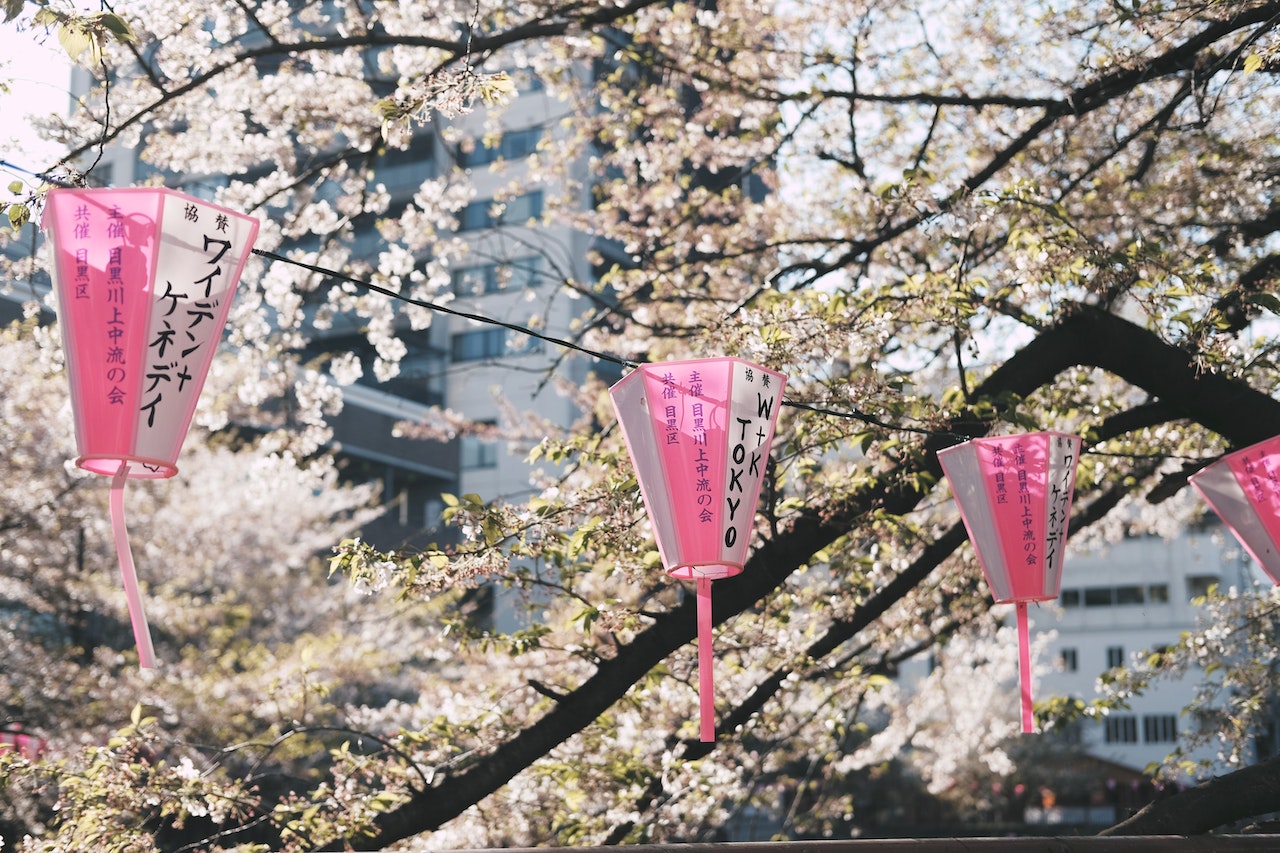Moving to Tokyo from US can be an exciting and life-changing adventure. Relocating to a different continent involves a series of challenges and preparations, but it also opens up a world of new experiences and opportunities. Moving from US to Japan is a significant undertaking that requires careful planning and organization. Several steps exist from booking flights to packing your belongings before embarking on this cross-continental journey. Adjusting to a new culture, language, and environment can be both exhilarating and overwhelming. However, with proper research and preparation, you can ease the transition and make the most of your move to the bustling metropolis of Tokyo. This article will guide you through the journey of moving across continents and highlight essential considerations to help you prepare for your big move to Tokyo.
Preparing for Your Move
Before you start packing your bags, consider these essential factors to ensure a smooth and successful move to Tokyo:
- familiarize yourself with Japanese customs, traditions, and etiquette to show respect and integrate better into your new community,
- research housing options in Tokyo, as the real estate market can be quite different from what you’re used to in the US, and
- understand the visa requirements and obtain the necessary permits to live and work in Japan legally.

Additionally, budgeting for the move, including international shipping costs, will help you plan financially for this life-changing endeavor. Lastly, learn basic Japanese phrases to facilitate communication and make your daily life more manageable in Tokyo.
The Logistics of Moving to Tokyo From US
Understanding the key aspects of international moving, such as choosing the right moving company by visiting Verified Movers platform and navigating shipping and customs regulations, is crucial for a successful relocation.
Choosing an international moving company
When moving across continents, selecting a reliable international moving company is essential. Look for experienced movers with expertise in handling overseas relocations to Tokyo. For instance, if you live in CA, it is easy to seek recommendations, read long distance movers reviews California, and compare quotes from different companies to find the one that best suits your needs and budget.
Shipping, customs regulations, and cost estimation
Moving to Tokyo from US involves shipping your belongings across continents. Understanding the logistics of shipping, customs regulations, and cost estimation is crucial for a successful international relocation. Also, you may need to ship your car. Apart from finding an appropriate company, you want to find out how to save money on car shipping. All this requires research.
When moving to Tokyo, you have two primary options for shipping your belongings: air freight and sea freight. Air freight is faster but generally more expensive, while sea freight takes longer but is more cost-effective for larger shipments. The choice between these options depends on your budget, the urgency of delivery, and the volume of goods you wish to transport.

Understanding customs regulations is critical to avoid delays or complications during shipping. Japan has specific rules and restrictions on items that can be imported. Certain items, such as firearms, plants, and certain food products, may be prohibited or restricted from entering Japan. Work closely with your chosen moving company to make the customs clearance process smoother. Additionally, you may need to declare the value of certain high-value items to avoid any issues with customs officials.
The cost of shipping your belongings to Tokyo can vary based on several factors. The volume and weight of your goods, the shipping method chosen (air or sea), the distance between the US and Japan, and any additional services you require will all influence the final cost.
Embracing Tokyo’s Culture and Lifestyle
Embracing Tokyo’s unique lifestyle and culture may come with some cultural differences and a language barrier. Transitioning to a new way of life can be exciting, but it’s essential to be mindful of customs and traditions. Although English is widely spoken in tourist areas, learning basic Japanese phrases like “konnichiwa” (hello) and “onegai shimasu” (please) can make interactions smoother and more enjoyable.
Tokyo is a food lover’s paradise, offering a rich culinary experience. Try traditional dishes like “sushi,” fresh slices of fish on vinegared rice, or “ramen,” flavorful noodle soup. Remember to use chopsticks properly, and if you’re unsure about a custom, observing and following locals’ lead is a great way to immerse yourself in the dining culture.

Tokyo’s entertainment and nightlife scene is electrifying. From dazzling city lights to bustling night markets, there’s something for everyone. Experience Akihabara’s latest technology and gaming trends, or indulge in the vibrant atmosphere of Harajuku’s fashionable streets. Catch a “kabuki” or “bunraku” show for a taste of traditional Japanese performance arts. And when the sun sets, explore the lively nightlife in neighborhoods like Shinjuku and Shibuya.
Rental Market in Tokyo
As one of the most populous and vibrant cities in the world, Tokyo’s rental market is shaped by its unique cultural and economic factors. In Tokyo, you can find various types of rental properties, including apartments, houses, and share houses. Apartments, particularly in high-rise buildings, are the most common type of rental housing. Rent costs in Tokyo can vary significantly depending on the property’s location, size, and condition. Central areas like Shibuya, Shinjuku, and Roppongi are generally more expensive, while neighborhoods further from the city center may offer more affordable options.
Most rental contracts in Tokyo are for a minimum of two years, although some short-term options are available. This may be a difference compared to the situation in many USA states, including Washington. So, before long distance movers Washington relocate you, make sure you have a place to stay. Landlords in Tokyo may have specific requirements for prospective tenants. Some landlords may require a guarantor (a Japanese citizen who vouches for you) or proof of stable income.
Cost of Living: Tokyo vs. US Cities
Let’s compare some key aspects of the cost of living in Tokyo with US cities.
Housing
In the capital city, prices vary widely, starting from approximately 20,000 JPY (190 USD) per month for a single room in shared housing and going up to more than 150,000 JPY (1,400 USD) for a private apartment. A two-bedroom unit costs a little over 200,000 JPY (1,870 USD) per month.
Food and dining
While Tokyo offers a wide variety of dining options, eating out can be more expensive than in many US cities. A meal at a mid-range restaurant in Tokyo can cost around $15 to $30 per person. In comparison, a similar meal in US cities like Chicago or Houston may range from $12 to $25 per person. However, this is not a reason to decide not to contact some of the best long distance movers Chicago and relocate. Somewhat higher prices are offset by other things Japan has to offer.

Groceries
Grocery prices in Tokyo can be higher than in some US cities. Imported or specialty items can be particularly expensive. However, local produce and goods can be relatively affordable. For example, a liter of milk in Tokyo may cost around $2.50, while the same in the US may range from $1 to $1.50.
Healthcare
Japan’s healthcare system is highly regarded for its quality, accessibility, and affordability. In Tokyo, medical costs can be lower compared to some US cities. The national health insurance system may make basic medical services and consultations more affordable in Japan.
Schooling Options for Expat Children After Moving to Tokyo From US
The city offers a diverse range of international schools, international sections within Japanese schools, and Japanese public and private schools with English-language programs.
International schools in Tokyo cater to a global community and provide education in various languages, including English. These schools often follow international curricula, such as the International Baccalaureate, Tokyo International School, and British School in Tokyo.
Several Japanese schools in Tokyo have international sections that offer bilingual or English-language programs. These sections provide a blend of Japanese and international curricula, allowing students to develop proficiency in both languages. Certain private schools in Tokyo provide English-language programs tailored to expatriate students. These schools often have smaller class sizes and offer a more individualized approach to education.

Navigating Legal and Administrative Aspects of Living in Tokyo
Before moving to Tokyo, ensure you have the correct visa to live and work legally in Japan. The most common visa for expatriates is the work visa, which requires sponsorship from a Japanese employer. If you plan to study in Tokyo, obtain a student visa through an educational institution. Spouses of Japanese citizens can apply for a spouse visa.
Upon arriving in Tokyo, register your residence at the local municipal office. This process, known as “juminhyo,” is mandatory for all residents, including foreigners. You’ll need to present your residence card, a document issued upon entering Japan with your visa, and proof of residence (e.g., a rental contract). The registration facilitates access to essential services and ensures you’re legally residing in Tokyo.
Job Market and Employment Opportunities
Tokyo’s job market is a dynamic mix of traditional and cutting-edge industries. The city’s financial district, known as Marunouchi, is a hub for banking and finance, with opportunities for financial analysts, investment bankers, and wealth managers. For tech enthusiasts, Tokyo’s tech scene offers job openings in software development, data analytics, and artificial intelligence, with companies like Sony, Panasonic, and SoftBank leading the way. Tokyo’s international business environment creates opportunities for expats with expertise in international relations, trade, and diplomacy.
Securing employment in Tokyo as an expat requires an understanding of the visa process. The most common work visa for expats is the Engineer/Specialist in Humanities/International Services visa. For example, a skilled software developer might be eligible for this visa to work in Tokyo’s tech industry.
Regarding work permits, when moving to Tokyo from US, expats need a job offer from a Japanese employer to apply for a work visa. The employer acts as the visa sponsor, and the expat must provide necessary documents, including a certificate of eligibility, to the Japanese embassy or consulate in their home country. Ensure to start this process well in advance. You want to avoid dealing with unexpected challenges on a moving day. Not having the required documents is certainly one.
Transportation, Commuting, and Safety
Tokyo offers a comprehensive network of medical facilities, including hospitals, clinics, and specialized centers. Many of these facilities have English-speaking staff or interpreters to assist expats. Major hospitals in Tokyo have well-equipped international departments specifically designed to cater to the needs of foreign patients. Transportation, commuting, and safety in Tokyo are well-organized, making daily travel convenient and secure. Tokyo boasts an extensive and efficient public transportation system, including trains, subways, and buses. The Japan Railways (JR) lines and Tokyo Metro cover the city, connecting various neighborhoods and suburbs. Trains and subways run frequently and are known for their punctuality.
Residents use IC cards like Suica or Pasmo to make commuting hassle-free, which can be preloaded with funds and used for seamless fare payments on trains, subways, and buses. As far as safety is concerned, Tokyo is renowned for it. Crime rates are relatively low, and the city is considered safe for both residents and visitors, even at night.
Expat Communities and Social Life in Tokyo
Tokyo is a vibrant and diverse city that attracts expatriates from around the world, creating a thriving expat community. Tokyo has neighborhoods known for their high concentration of foreigners. Areas like Roppongi, Azabu Juban, and Hiroo are popular choices for expats due to their international atmosphere and accessibility to amenities from various countries.
Expatriates in Tokyo have ample opportunities to network and socialize through events organized by embassies, chambers of commerce, and international associations. These events provide a platform to meet like-minded individuals and expand social circles. Moreover, Tokyo hosts various international festivals and expos, celebrating cultures from around the world. These events offer a chance for expats to experience and share their own cultural traditions with others.

Moving to Tokyo From US: A Vibrant Journey for Expats
Tokyo offers a unique and enriching experience for expatriates seeking new opportunities and adventures., so moving to Tokyo from US can be the right decision. The city’s dynamic job market, efficient transportation, and comprehensive healthcare system make it an attractive destination for those looking to live and work abroad. Prepare for the move well, research the place, and navigate the specifics of your relocation, such as looking out for hidden moving costs. Tokyo’s vibrant expat communities and social life provide a welcoming and inclusive environment, allowing individuals from different backgrounds to connect, share experiences, and build lasting friendships.




